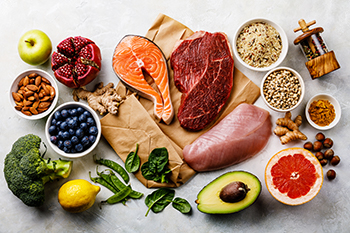More Health and Nutrition Bites
Related
More evidence that healthier isn't more expensive
People still believe that eating healthier costs more than eating the processed foods available in the supermarket or even buying fast food. The problem, however, is how "cost" and "healthier" is defined: is it cost per calorie? Cost per some unit of energy density? What about macro- and micro-nutrients such as carbohydrates, protein, vitamins, and minerals? Depending on the definitions, research is mixed as to whether it's more expensive to eat healthy. I have found that per serving, making your own home made version of processed foods like Hamburger Helper© is both cheaper and you get more to eat by volume, and the same is true of McDonald's.
Comparing the cost of meatless and non-meatless diets
There's been plenty of discussion about the supposed higher cost of eating healthy. The truth is that on the large scale, not only is it cheaper in the long run to eat healthier (because you'll spend so much less on health care), but on the small scale it's cheaper on a cost-per-serving basis.
Busting the Myth: Eating Healthy is Cheaper and Doesn't Take Longer
Recently we offered another round of continuing medical education programs for physicians at the Goldring Center for Culinary Medicine. The cost of eating healthy came up, as it does at almost every event I do these days.
Health & Nutrition Bites
Get the latest health and diet news - along with what you can do about it - sent to your Inbox once a week. Get Dr. Gourmet's Health and Nutrition Bites sent to you via email. Sign up now!
Processed foods make you fat

If there's one thing that the popular diets of today have in common, it's that you should avoid highly-processed foods in favor of cooking for yourself from raw or minimally-processed ingredients. Yet for decades we have emphasized counting calories in order to effect weight loss or to maintain weight.
Well, if a calorie is a calorie is a calorie, then it shouldn't matter whether you eat 2,000 calories of Twinkies® or 2,000 calories of carrots - at least in terms of body weight. Right?
A study just published in Cell Metabolism (2019, https://doi.org/10.1016/j.cmet.2019.05.008) may explain that seeming paradox.
The authors recruited 10 men and 10 women of clinically normal body weight to live at the lab for 28 days. Half of these people were assigned to consume a highly-processed diet for 14 days, while the other half consumed a diet of minimally-processed foods for the same period. After the initial 14 days the groups switched diets for an additional 14 days.
All meals, beverages, and snacks were provided by the researchers, and at each meal the participants were allowed to consume as much of the presented meal as they chose to eat, up to twice the number of calories calculated as appropriate to maintain the body weight of the participant.
The nutrient composition of both diets, ultra-processed or minimally-processed, was designed to match in terms of percentage of calories from protein, fat, carbohydrates, and fiber: theoretically, both diets should have been equally satisfying for the participants and they should have consumed about the same number of calories.
Yet when presented with the ultra-processed foods, the participants chose to eat more: about 500 calories per day more, on average, than those consuming the minimally-processed diet. Thus they gained weight: about 2 pounds per week.
On the other hand, those eating the minimally-processed foods lost about the same amount of weight (2 pounds per week), which is only partially explained by their lower consumption of calories.
The authors were careful to make sure that the presented meals were just as tasty for those on the minimally-processed diet as for those on the ultra-processed diet. They noted, however, that those consuming the ultra-processed diet seemed to eat faster - and they tended to consume more carbohydrates and fat - than those on the minimally-processed diet.
What's particularly odd is that the researchers found that the participants burned more calories while on an ultra-processed diet - but those extra calories burned still didn't offset the greater number of calories they consumed. All participants, regardless of their assigned diet, performed 60 minutes per day of stationary cycling at a pre-determined pace designed to help the participants avoid being classified as completely sedentary during the study.
This study required that 20 people reside in the lab all day every day for 28 days. All 20 of those participants spent 4 24-hour periods each (two separate days per each 14-day dietary period) in a metabolic chamber to measure their caloric burn. Such studies are quite accurate but extremely expensive, which is why they are so small.
In addition to the weight they gained during the ultra-processed diet period, the participants also saw negative changes in their body fat mass. Yet there were few other negative changes in measures such as glucose tolerance or insulin sensitivity. The authors note that the lack of changes may have been due to the enforced amount of exercise.
What this means for you
If you are working on your weight, do your best to ditch the processed foods. (If it comes in a box of any kind, don't eat it.) This study claims that it cost them $151 per person for the ingredients to make 14 days of unprocessed meals as opposed to $106 per person for the ingredients to make the 14 days of the ultra-processed meals. Don't believe it! You can eat healthy, cheaply, with minimally-processed foods, cooking at home, with smart planning. See the video proof that you can feed a family of four for less than about $150 per week.
First posted: May 22, 2019
